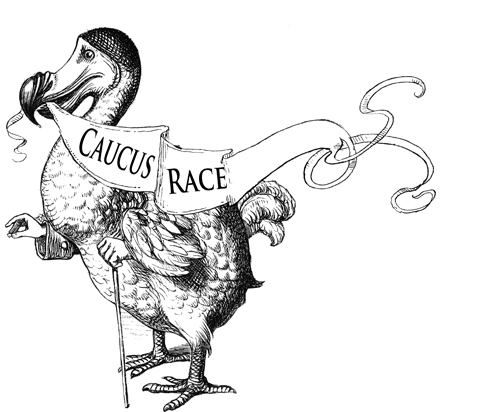
“What is a Caucus Race?” said Alice.
“Why,” said the Dodo, “the best way to explain it is to do it.”
Saturday, July 7 and Sunday, July 8, 2012 will be the fifth Alice’s Day event (celebrating 150 years since Lewis Carroll’s first telling of Alice’s Adventures in Wonderland) in the historic city of Oxford, England.
While the majority of Alice’s Day activities will take place on Saturday July 7, The Caucus Race, a free outdoor event on Sunday, July 8, is also expected to attract thousands of visitors to the historic city the day before the Olympic flame for London 2012 passes through.
“We are proud to be selected to feature in the London 2012 Festival, part of the Cultural Olympiad,” says Cath Nightingale, Communications Director of the Story Museum. “Our Caucus Race is different from any other race since everyone can take part and there are no rules!”
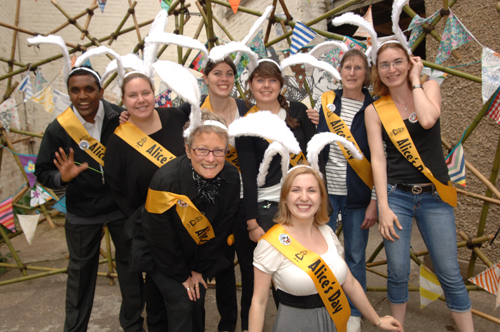
The Caucus Race — a madcap re-enactment of the race featured in chapter three of Lewis Carroll’s classic story, Alice’s Adventures in Wonderland — will take place on Merton Field, part of Christ Church where Lewis Carroll originally penned the novel. This very different multi-art-form kind of race is presented by the Story Museum in collaboration with Big Dance, and is directed by Cirque Bijou.
Dance, music, street theater, and creatures ranging from the Dodo to the Dormouse, promise spectacular Wonderland entertainment for young and old that is not to be missed. And those wanting to get into a Caucus Race musical mood can do so the day before. The Caucus Race story will be presented by the renowned Oxford Girls’ Choir, featuring opera singer baritone Roderick Williams as the Dodo. This is the first time that Williams, who wrote the children’s opera, Alice in Wonderland, will also be performing in it. I had the opportunity to chat with Williams about the production.
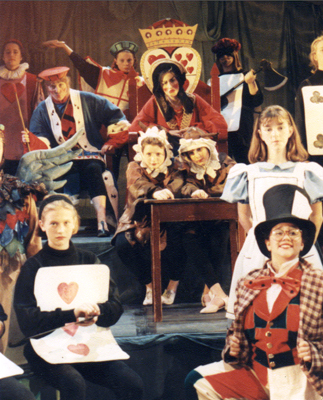
Roderick, please tell us about your children’s opera, Alice In Wonderland.
I wrote the full-scale children’s opera, adapting Lewis Carroll’s novel, which was first performed by the Oxford Girls’ Choir in 1992. There were dozens of solo parts for the singers, choral set-pieces, dances and the like, and it was accompanied by a chamber orchestra of 16 players. The opera was in two acts, with the first concerning Alice’s fall down the hole and her attempts to get into the garden, and with the second act describing her adventures when she finally finds her way in. Since then, the entire opera has been performed several times. I have also transcribed the piece for piano and smaller ensemble. The extract that we are performing on Saturday, July 7 is a short scene from the first act, The Caucus Race, where Alice meets various animals who have been swimming to safety from the pool of tears she created when she was larger. The Caucus Race comes about as an attempt to dry themselves off.
What inspired you to write the opera?
I had performed Dido and Aeneas alongside the Oxford Girls’ Choir several times and had seen first hand how well they could sing, act and dance. Richard Vendome, Musical Director of the choir, and I discussed a project that would make the most of the Oxford connection, a story based specifically around a young girl rather than a boy, which would make the most of all the talent in the choir. He then commissioned me to write the opera.
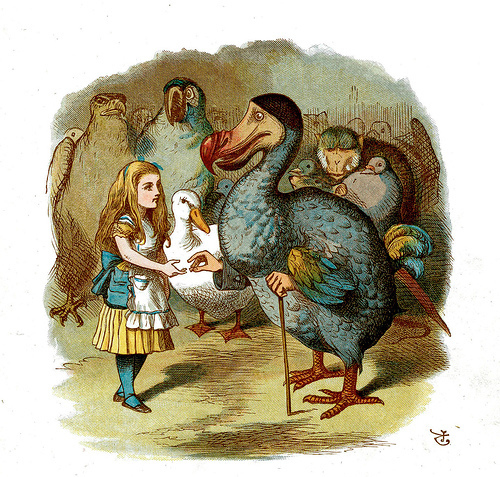
What for you is most special about the choir’s performance?
It is always a special and priceless experience to see anyone else perform something you have written. The act of taking a piece which was once mine and making it theirs is in essence what music is about, and I find that process profoundly exciting.
Why do you think the world is still crazy about Alice’s Adventures in Wonderland, 147 years after its original publication?
I think all of us have tried to make sense of an adult world which is fundamentally crazy. In Alice we see the world from her innocent point of view, and while it is magical, it is also utterly bizarre. I think all of us can relate to Alice’s struggle. Lewis Carroll, for all his quiet, academic existence, seems to have been able to empathize directly with his child heroine, and I think that is why his story is so completely absorbing.
The Caucus Race story, an extract from the children’s opera Alice in Wonderland, will be presented by the Oxford Girls’ Choir featuring Roderick Williams in the courtyard of the Story Museum, Oxford on Saturday, July 7 at 11 a.m., 12 p.m. and 2 p.m.
For more information on Alice’s Day: http://www.storymuseum.org.uk/the-story-museum/alice
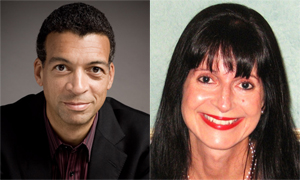
Photos courtesy of The Story Museum and Roderick Williams.
For more Alice articles: click here
C. M. Rubin is the author of two widely read online series for which she received a 2011 Upton Sinclair award, “The Global Search for Education” and “How Will We Read?” She is also the author of three bestselling books, including The Real Alice in Wonderland.

Recent Comments